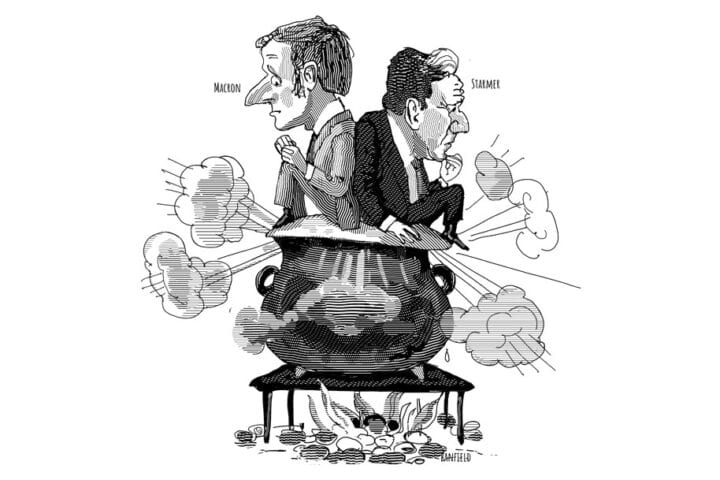“It being the true intent and meaning of this act not to legislate slavery into any Territory or State, nor to exclude it therefrom, but to leave the people thereof perfectly free to form and regulate their domestic institutions in their own way, subject only to the Constitution of the United States.” Thus did the evasive Stephen Douglas, in the 1854 Kansas-Nebraska Act, dodge the moral question of slavery by leaping into the briar patch of legality.
“I’m leaving everything up to the states. The states are going to be different. Some will say yes. Some will say no. Texas is different than Ohio…. I don’t have to do anything about vetoes, because we now have it back in the states.” Thus, as Abraham Lincoln spun in the grave, did the ideological blank slate Donald Trump, in an interview following the overturning of Roe v. Wade, evade the moral question of abortion by resurrecting the specious doctrine of popular sovereignty.
Although the question of slavery and that of abortion are, or should be, wholly dependent upon the further question of who is a human being and who is not, abortion is unlike the absolute binary of slavery, in that, for example, it may force a choice between the life of the mother and the life of the child. In the era of the Lincoln-Douglas debates, however, tradition, practice, and various religious and philosophical interpretations



